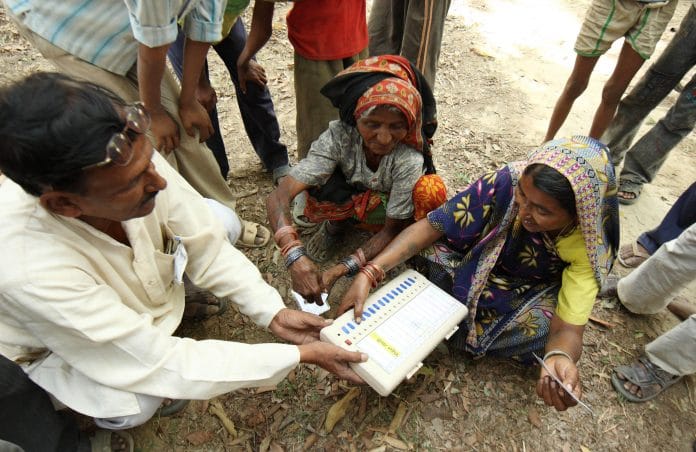Commission realised it was a ‘half-baked report’ which needed more debate, but has recommended a framework under which joint polls can be held in 2024.
New Delhi: The Law Commission of India was expected to present Thursday its final report on the controversial subject of ‘one nation, one election’.
But it ended up giving just a draft report due to last-minute internal differences over whether the proposal would tinker with democracy, the basic structure of the Constitution, or India’s federalism, ThePrint has learnt.
“We were prepared to give the final report, but when the commission met today and some members asked these questions, when we didn’t have the answers, we thought maybe the issue needs further examination,” said a senior official in the commission who spoke on the condition of anonymity.
While a few members had said that joint polls would not adversely impact the federal structure of the country, not all members were convinced.
Also, there was a realisation that joint polls cannot possibly be held in 2019. “It is clear that joint polls cannot be held without a constitutional amendment, and that will take time, so we thought there is no hurry, and it may not be wise to give a half-baked report to the government,” the official said.
However, the report was made public “with an intention to initiate a healthy and sustainable debate on the issue”.
Also read: No ‘one nation, one poll’ without amending Constitution, law panel to tell Modi govt
Other unanswered questions
What must be done when there is a hung Parliament or assembly? What is to be done when no political party has a majority to form a government? While the commission has recommended certain amendments to the Constitution, what other Articles may require amendments? These are just some of the questions that remain unanswered.
Due to a lack of consensus over these questions, the commission has made a public appeal at the start of its draft report: “It is desirable to have further discussions and examination on the matter, involving all the stakeholders, once again, before making final recommendations to the government.”
The draft report says that simultaneous polls, though desirable, cannot be held in the country without constitutional amendments, as reported by ThePrint earlier this week.
“The commission is aware of the fact that holding simultaneous elections is not possible within the existing framework of the Constitution,” the report said. Therefore, it has suggested certain “inevitable amendments” to the Constitution to enable simultaneous polls, which it believes save public money, reduce the burden on administrative and security forces, and ensure that the administrative machinery is not involved in constant electioneering.
The present commission’s tenure is due to expire Friday, 31 August, the next commission can make use of the recommendations made in the draft report. “They will not have to start from scratch, but only address the issues that we could not,” the official said.
How simultaneous polls can be held in 2024
According to the framework recommended by the commission, elections in the five states of Andhra Pradesh, Arunachal Pradesh, Odisha, Sikkim and Telangana are due with the Lok Sabha elections in 2019 and, therefore, stand synchronised. With political will and consensus, elections in Haryana, Jharkhand, Maharashtra and Delhi can be called early and held along with the Lok Sabha polls.
However, in order to synchronise the elections in Chhattisgarh, Madhya Pradesh, Mizoram and Rajasthan with the general elections, an extension of up to six months is required, which will entail amending Article 172 of the Constitution.
In case of the remaining 16 states and Puducherry, holding simultaneous elections in 2019 will be impractical; thus elections in these states can be conducted towards the end of 2021, the report said.
The next round of elections in 2024 can be held together with the maximum period by which any state assembly will be extended would be by 13 months (in the case of Bihar) and the maximum period of curtailment would be 17 months (in the case of Karnataka).
Also read: Simultaneous polls will be like striking at root of Parliamentary democracy, says watchdog







Can’t stand.